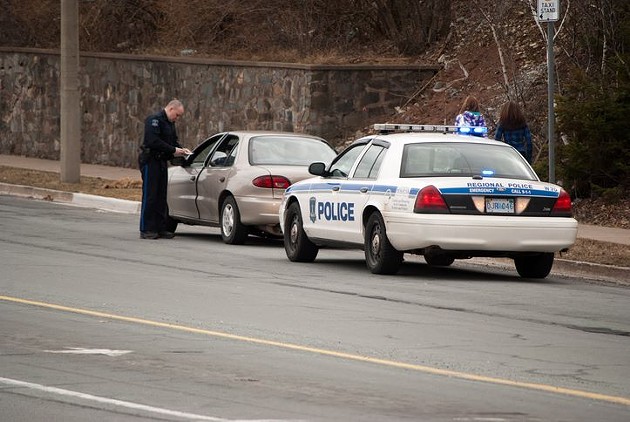Nzingha Millar says recent statistics released by Halifax Regional Police makes her question the progress made when it comes to racial profiling the community.
“This is anti-black racism specifically–not just non-white people being checked.”
Millar is currently a student in the one-year journalism program at King’s. She’s one of four panelists scheduled to participate in a Black Lives Matter panel on Monday, organized by Dalhousie University’s Black Student Advising Centre.
Last week, a CBC investigation brought the numbers of street checks performed by Halifax police to light: black people are three times more likely than white people to be stopped by police. The RCMP has similarly staggering statistics.
“How much progress have we really made?” asks Millar. “We don’t have a definitive answer about why there is such a huge variance in the numbers of white people that are stopped versus black.”
Amit Parasram, HRP’s diversity officer, is concerned people are drawing conclusions from unanalysed data.
“I think jumping to a statement like racial profiling causes a lot of issues,” he says. “If we went and interpreted (the statistics) in a way that we don’t have substantial proof, then that could cause more impact within that community.”
Millar agrees that a more in-depth inquiry is needed, but she says the police’s skepticism about the role of racial profiling is a major issue. She refers to the 2003 case of Kirk Johnson–a boxer who was stopped while driving in Dartmouth and had his car seized. A human rights inquiry led to a public apology from HRP and $10,000 in damages.
“The anecdotal experiences that have been expressed by black Nova Scotians for so long are still not valid. They’ve been invalidated for so long.”
Lindell Smith, the regional councillor for north-end Halifax, shared some of his own experiences after a council meeting last week.
“As a community member, I've known it's been happening for a long time,” he says.
"It's sad that now it's taken another body to look at that evidence and kind of call the city out and our police force out, and now it's on the radar."
Given the long history of black people in Nova Scotia, the oppression they faced and how they fought for their rights--Millar says it only makes sense for black Nova Scotians to get involved with the “new age of activism.” Black Lives Matter is one way to try and shift police culture, says Miller.
“If we allow spaces to welcome change...and to question the way things have been done for so long, I think that we can make progress,” she says.

